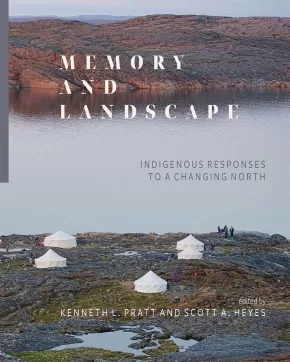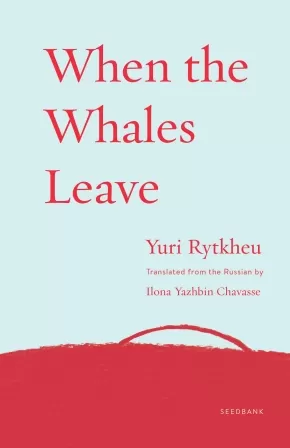Indigenous Peoples in Siberia
Synopsis:
“Our identity, our sense of belonging, our understanding of being human, is all connected to our relationship with the land. And our relationship with these lands span millennia. Our grandfathers and grandmothers that came before us walked these same ridges, valleys, and trails. They fished the same lakes, streams, and rivers. They cherished memories carried in the pungent smell of the fall tundra, in wafts of spruce, cottonwood, and willow smoke. They ventured throughout these lands until their final rest. Our ancestors are literally part of this land. We are part of this land.” –Evon Peter
The North is changing at an unprecedented rate as industrial development and the climate crisis disrupt not only the environment but also long-standing relationships to the land and traditional means of livelihood. Memory and Landscape: Indigenous Responses to a Changing North explores the ways in which Indigenous peoples in the Arctic have adapted to challenging circumstances, including past cultural and environmental changes. In this beautifully illustrated volume, contributors document how Indigenous communities in Alaska, northern Canada, Greenland, and Siberia are seeking ways to maintain and strengthen their cultural identity while also embracing forces of disruption.
Indigenous and non-Indigenous contributors bring together oral history and scholarly research from disciplines such as linguistics, archaeology, and ethnohistory. With an emphasis on Indigenous place names, this volume illuminates how the land—and the memories that are inextricably tied to it—continue to define Indigenous identity. The perspectives presented here also serve to underscore the value of Indigenous knowledge and its essential place in future studies of the Arctic.
Contributions by Vinnie Baron, Hugh Brody, Kenneth Buck, Anna Bunce, Donald Butler, Michael A. Chenlov, Aron L. Crowell, Peter C. Dawson, Martha Dowsley, Robert Drozda, Gary Holton, Colleen Hughes, Peter Jacobs, Emily Kearney-Williams, Igor Krupnik, Apayo Moore, Murielle Nagy, Mark Nuttall, Evon Peter, Louann Rank, William E. Simeone, Felix St-Aubin, and Will Stolz.
Additional Information
448 pages | 8.00" x 10.00" | 172 Colour Illustrations | Paperback
Authenticity Note: This work contains contributions from Indigenous and non-Indigenous contributors. It is up to readers to determine if this is an authentic work for their purposes.
Synopsis:
“Arguably the foremost writer to emerge from the minority peoples of Russia’s far north.” —New York Review of Books
Nau cannot remember a time when she was not one with the world around her: with the fast breeze, the green grass, the high clouds, and the endless blue sky above the Shingled Spit. But her greatest joy is to visit the sea, where whales gather every morning to gaily spout rainbows.
Then, one day, she finds a man in the mist where a whale should be: Reu, who has taken human form out of his Great Love for her. Together these first humans become parents to two whales, and then to mankind. Even after Reu dies, Nau continues on, sharing her story of brotherhood between the two species. But as these origins grow more distant, the old woman’s tales are subsumed into myth—and her descendants turn increasingly bent on parading their dominance over the natural world.
Buoyantly translated into English for the first time by Ilona Yazhbin Chavasse, this new entry in the Seedbank series is at once a vibrant retelling of the origin story of the Chukchi, a timely parable about the destructive power of human ego—and another unforgettable work of fiction from Yuri Rytkheu, “arguably the foremost writer to emerge from the minority peoples of Russia’s far north” (New York Review of Books).
Reviews
“We have so little intimate information about these Arctic people, and the writer’s deep emotional attachment to this landscape of ice (today melting away under global warming forces) makes every sentence seem a poetic revelation.”—Annie Proulx
“Rytkheu immerses his readers in the fantastical landscapes of the Arctic circle, and does so without breaking a sweat. . . . His elegant, unforced descriptive writing can whip us across leagues of tundra and thread the jagged icebergs studding hyperborean seas, but when the blizzards hit and the characters are trapped in their huts, we’re snowbound there with them under the whale-oil lamp, chewing walrus and hoping for respite.”—Bookslut
“Thousands of books have been written about the Arctic aborigines by intruders from the south. Rytkheu has turned the skin inside out and written about the way the Arctic people view outsiders. A Chukchi himself, [he] writes with passion, strength, and beauty of a world we others have never understood.”—Farley Mowat
Additional Information
136 pages | 5.50" x 8.50" | Translated by Ilona Yazhbin Chavasse








